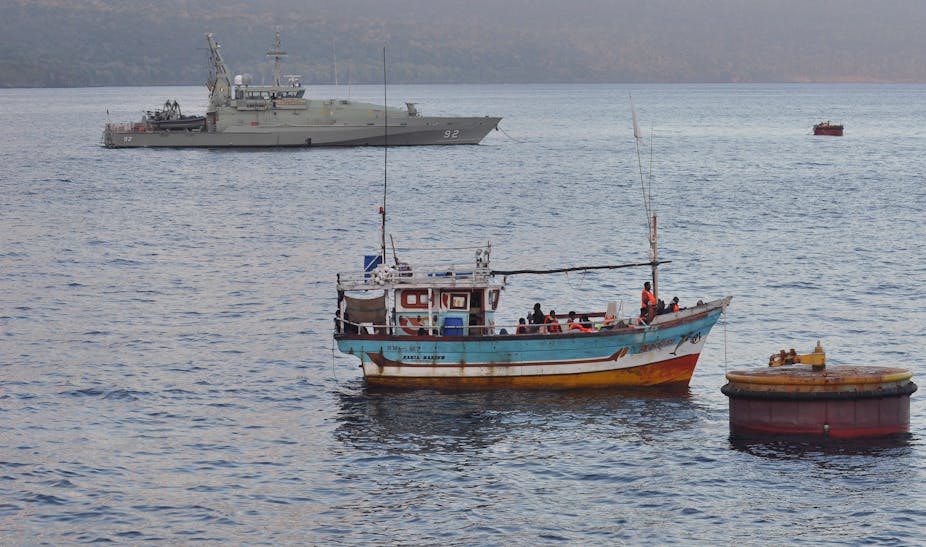The release on Wednesday of the review into the circumstances of how and why the Australian navy repeatedly entered Indonesian waters might have been expected finally to reveal information about Australia’s operations in pushing back asylum boats. The government has maintained that Operation Sovereign Borders cannot be fully disclosed because it would jeopardise national as well as operational security.
The revelations that Operation Sovereign Borders had violated Indonesia’s territorial sovereignty came despite assurances that no such incursions would occur. These concerns prompted the Australian Customs and Border Protection Service and the Acting Chief of the Defence Force to investigate:
…the facts and circumstances surrounding the entry of Australian vessels into Indonesian waters.
The decision to investigate and report on one aspect of Operation Sovereign Borders appeared to be an opportunity for greater transparency. However, despite the review of over 2200 documents for the purposes of constructing a “narrative of events”, we have learned extremely little.
The nub of the executive summary that has been publicly released is that each of the six incursions:
…arose from incorrect calculation of the boundaries of Indonesian waters rather than as a deliberate action or navigational error.
But what were the Australian vessels doing that brought them so close to Indonesia? Were they just patrolling and looking to see if any boats were leaving Indonesia with asylum seekers on board? Or were they actively towing (pushing) vessels with irregular migrants back to Indonesia?
The answers to these questions have different legal consequences for Australia.
Australian warships are allowed to enter Indonesian waters if they are merely passing through. This is the right of innocent passage that exists in the territorial sea and in archipelagic waters.
A warship violates the right of innocent passage if it undertakes activities considered by the coastal state to threaten its peace, good order and security. The UN Convention on the Law of the Sea (UNCLOS), to which Australia and Indonesia are parties, sets out a range of activities that would render passage non-innocent. Among these are the unloading of persons in violation of the coastal state’s migration laws.
As Australia is acknowledging a violation of Indonesia’s sovereignty, then it may be concluded that the Australian warships were not just passing through, but undertook activities that are contrary to Indonesia’s peace, good order and security.
If Australia was towing back vessels, where were these vessels intercepted? To assess the legality of actions at sea, it is essential to know where they happen and what was going on at the time.
On the high seas, Australia may not interfere with a foreign-flagged vessel. There are very limited exceptions to this principle because the exclusive authority a flag state has over its vessel is prioritised under international law. We don’t know if the vessels Australia is intercepting are necessarily flagged to Indonesia.
If a vessel is very small and not flagged or registered to any particular state, an Australian warship could exercise the right of visit on the high seas. This right allows Australia to approach and potentially board the vessel to search it or question those onboard.
The right of visit does not necessarily allow for the arrest or detention of the vessel and its crew and passengers. At best guess, pushing back or towing back boats would seem to involve some amount of detention.
In 2012, the European Court of Human Rights held Italy liable for violating the human rights of asylum seekers who were intercepted at sea and taken to Libya. Has Australia similarly exercised “continuous and exclusive de jure and de facto control”, as the European Court found, triggering human rights obligations? If the irregular migrants were put on lifeboats and steered towards Indonesia, then presumably so.
The recommendations of the review into incursions into Indonesian waters are focused on improving the training of those Australian officials involved in Operation Sovereign Borders. This includes the need to “ensure a tactical appreciation of UNCLOS”. It is to be hoped that such an appreciation could extend beyond a better knowledge of Indonesia’s maritime boundaries.

